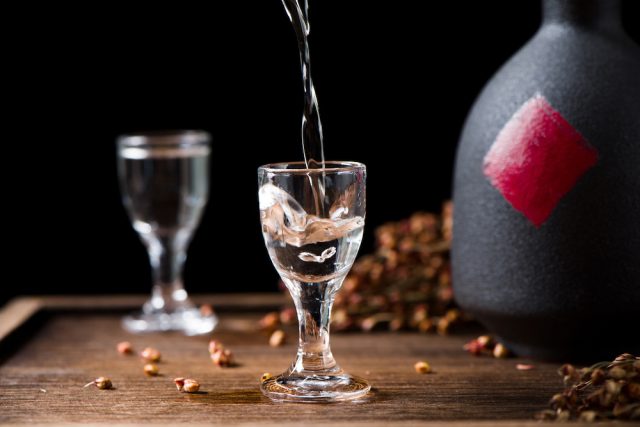This website uses cookies so that we can provide you with the best user experience possible. Cookie information is stored in your browser and performs functions such as recognising you when you return to our website and helping our team to understand which sections of the website you find most interesting and useful.
Baijiu producers target the West
Attack, they say, can be the best line of defence. It’s a maxim that China’s baijiu distillers are taking to heart. Ron Emler reports.

According to Reuters’ reporting from Beijing, the giant baijiu industry is weary of Western distillers such as Diageo and Pernod Ricard moving in on its home market and is reformulating variants of the fiery spirit to give it more appeal to European and American consumers.
Baijiu, which comprises some 95% of the alcohol consumed in China, straddles an extremely wide spectrum of both production techniques and tastes.
It’s alcohol content can be between 40% and 60% and is largely distilled from sorghum, although wheat, barley, millet or glutinous rice are also used.
That gives a profusion of flavours ranging from muddy beer, to vodka and, some say, soy sauce.
Sales in the home market are rising but sluggishly, so top-end producers such as Kweichow Moutai have been developing additional uses such as in partnership with Luckin coffee and also offering baijiu flavoured ice creams.
Demand
Although these ventures were initial hits, demand has not given the premium producers the fillip they were seeking, especially in the face of determined attempts to move their wealthier domestic consumers towards cognac, scotch and vodka.
Pernod Ricard has already opened a distillery and Diageo is about to do so. Along with Remy Cointreau, they have all spent heavily on marketing to wealthy Chinese.
Diageo also holds a 60% stake in Sichuan Shuijingfang which produces Swellfun as well as a number of wine brands. Its baijiu is targeted largely at Chinese ex-pats around the world, especially in Asia and the Western US.
While the category is available in cosmopolitan centres with large Chinese communities such as London and San Francisco, it is rarely stocked except at prestige outlets such as Harvey Nichols or Selfridges.
High price
Now, in a bid to find new pockets of growth, some major producers are starting to pitch it seriously to Western consumers.
For instance, Reuters says that Shede Spirits, based in the Sichuan province, sells two baijiu brands, with the more expensive, Shede, priced at up to US$1,000 per bottle.
It is running tastings sessions to identify variations that might appeal to non-Chinese customers.
Participants are dawn from the United States, Australia, Britain and other European countries, as well as Asian centres such as Tokyo and Singapore.
The company will sell the international version of its Shede baijiu for around US$150 from September in parts of Europe, the United States and Japan.
Campari
Rival baijiu distiller Yibin Wuliangye has already forged links with Campari in a partnership to promote their brands.
Campari has been a relative latecomer to the assault on Chinese drinkers and is looking to rapidly boost its sales there while Wuliangye wants to grow through
Campari’s international network, which has expanded rapidly in the past 15 years. When the deal was announced last year, Campari said the two companies would work on marketing and brand promotion and co-create products.
They have already developed a twist on the negroni cocktail using a special blend of Wuliangye’s baijiu rather than a gin base. Launched in Shanghai in September it is called the “Wugroni”.
Related news
Nikka whisky ceberates 90th anniversary with special release
Suntory to shift Irish whiskey bottling to Spain and Scotland

